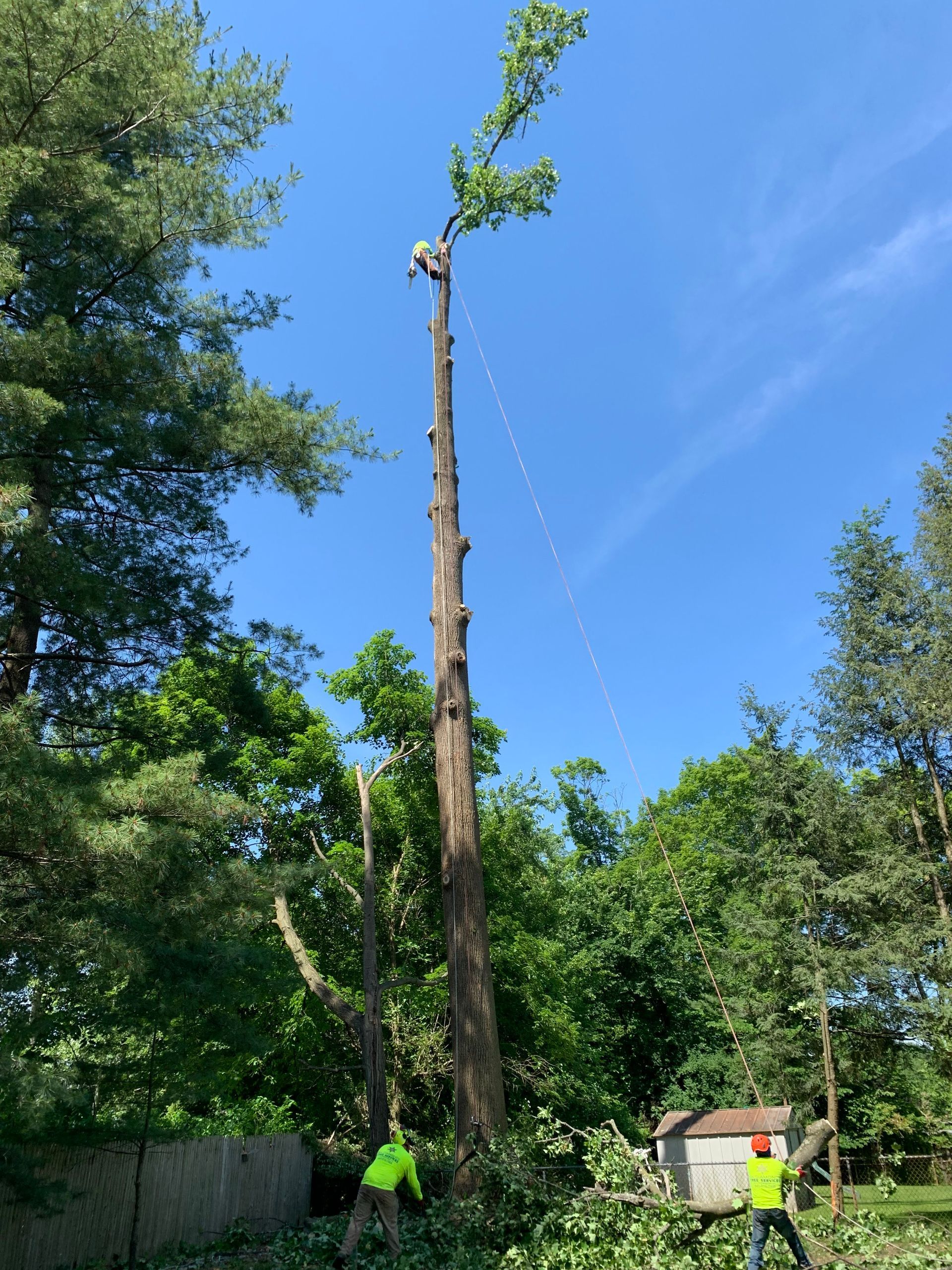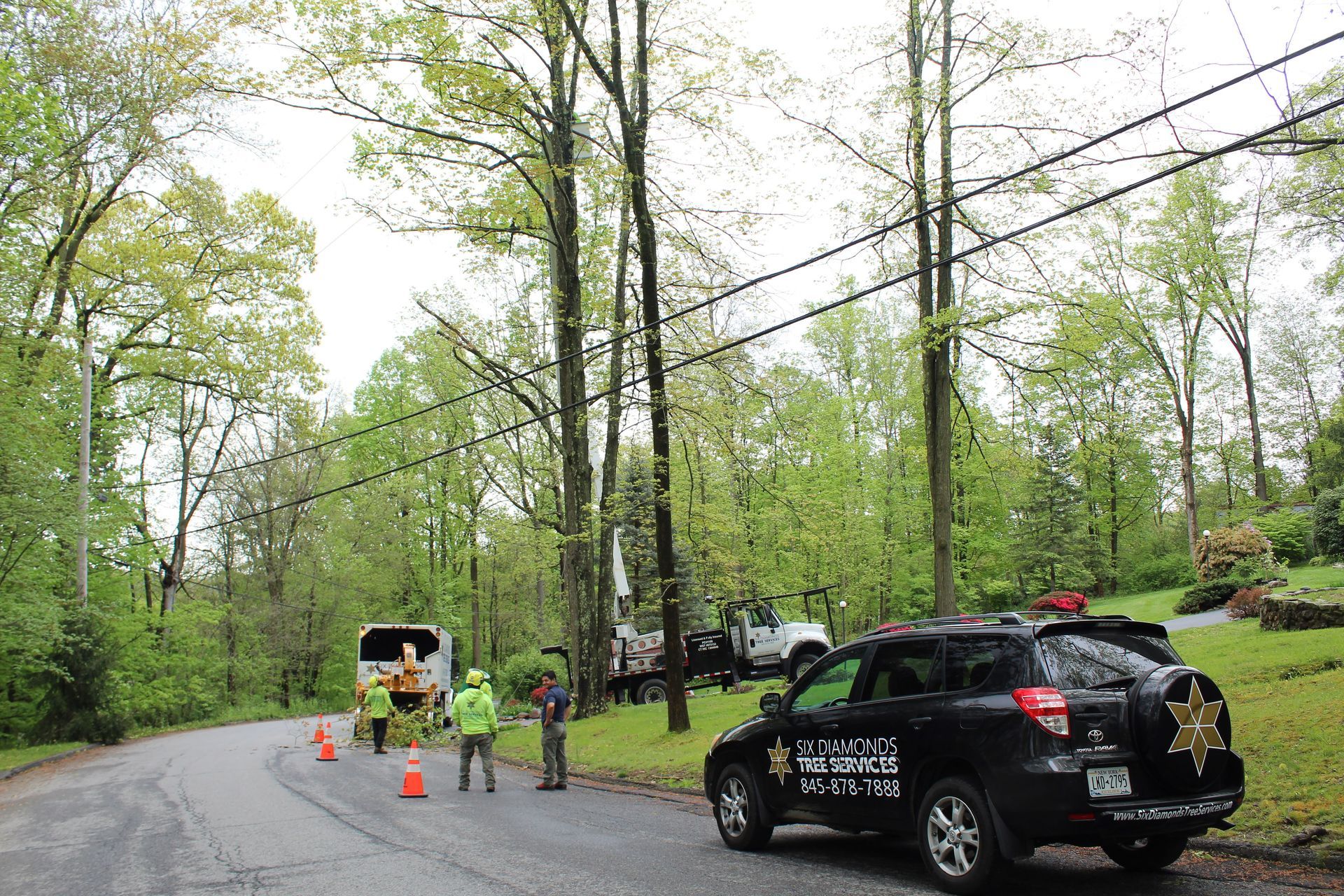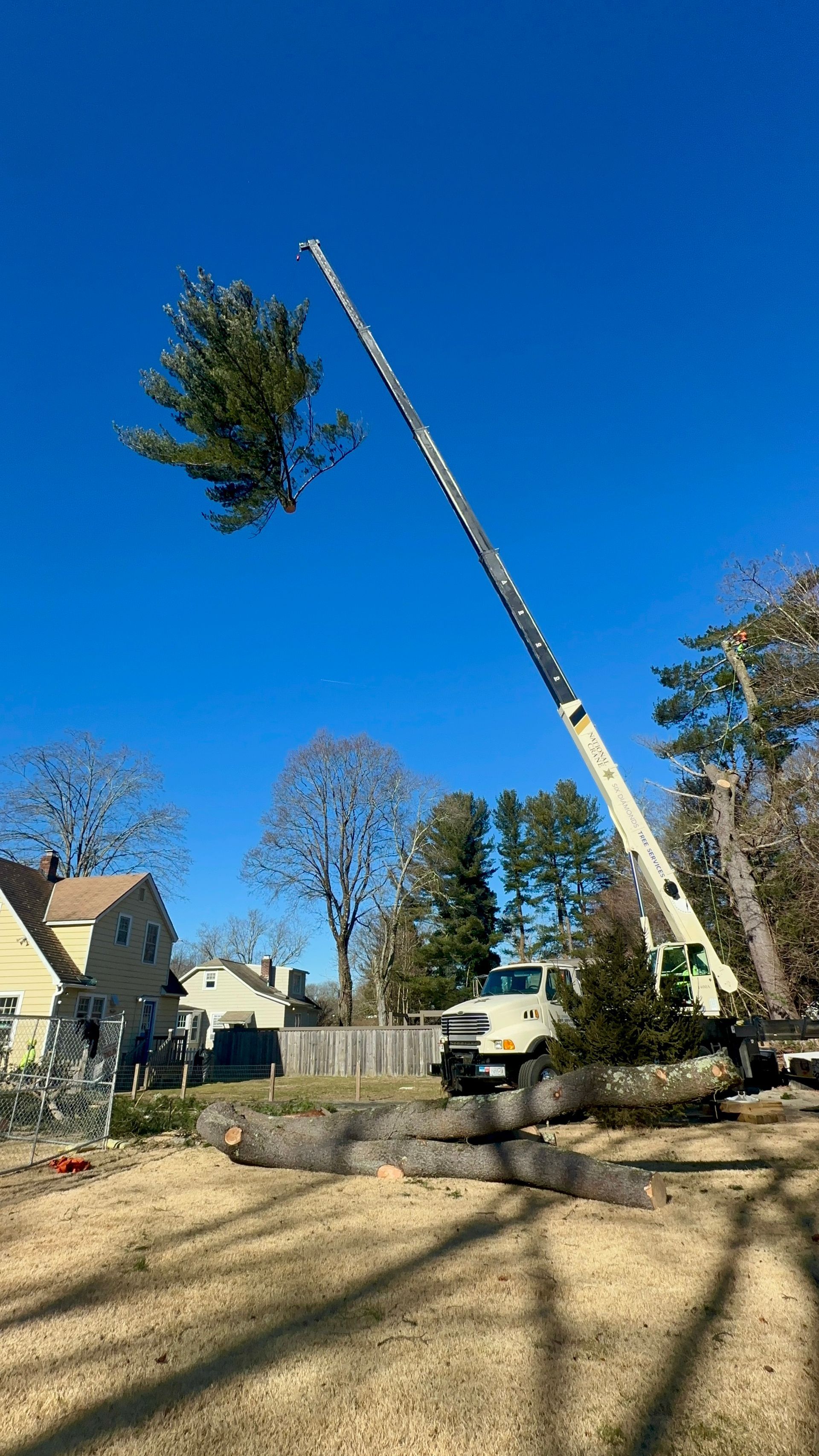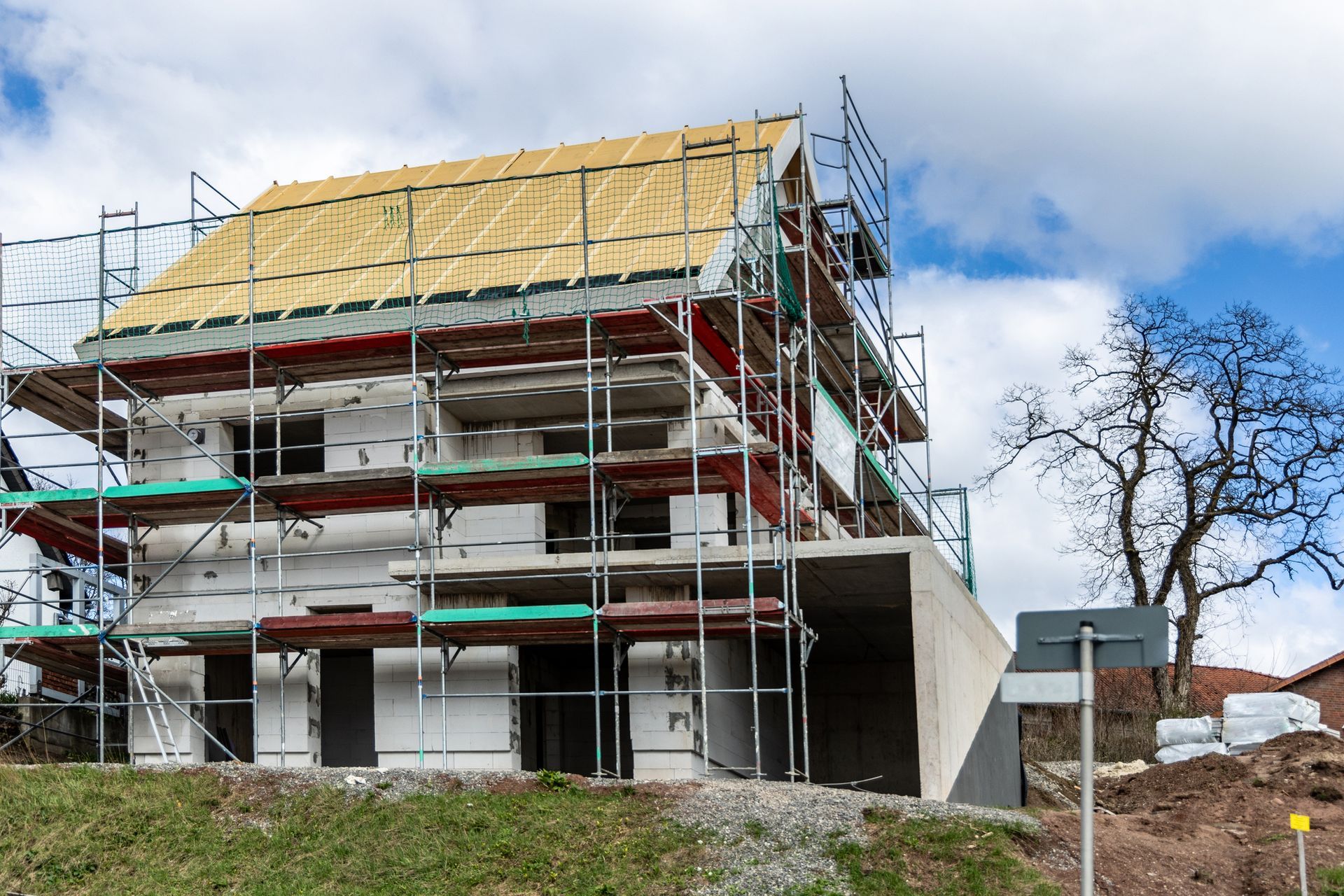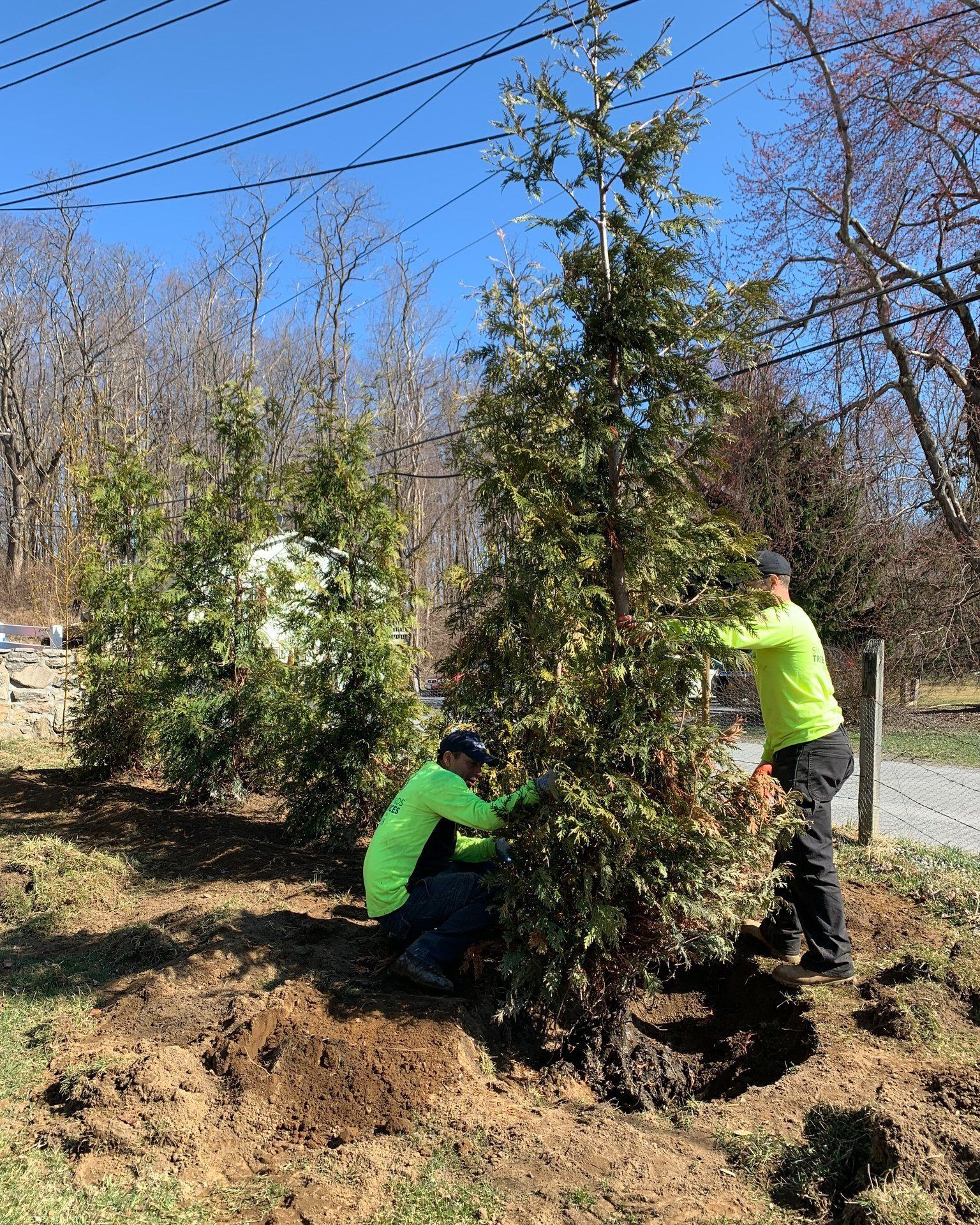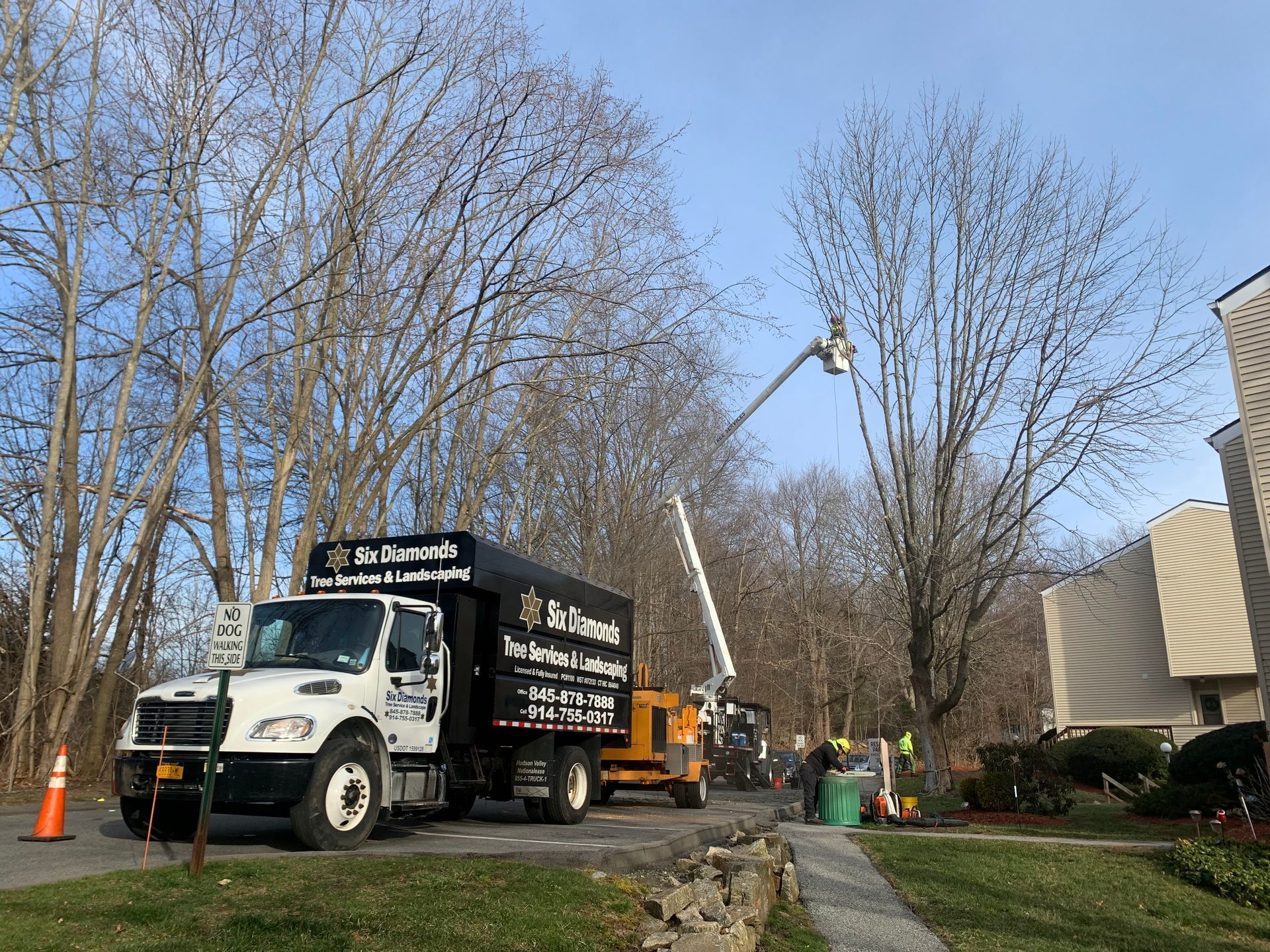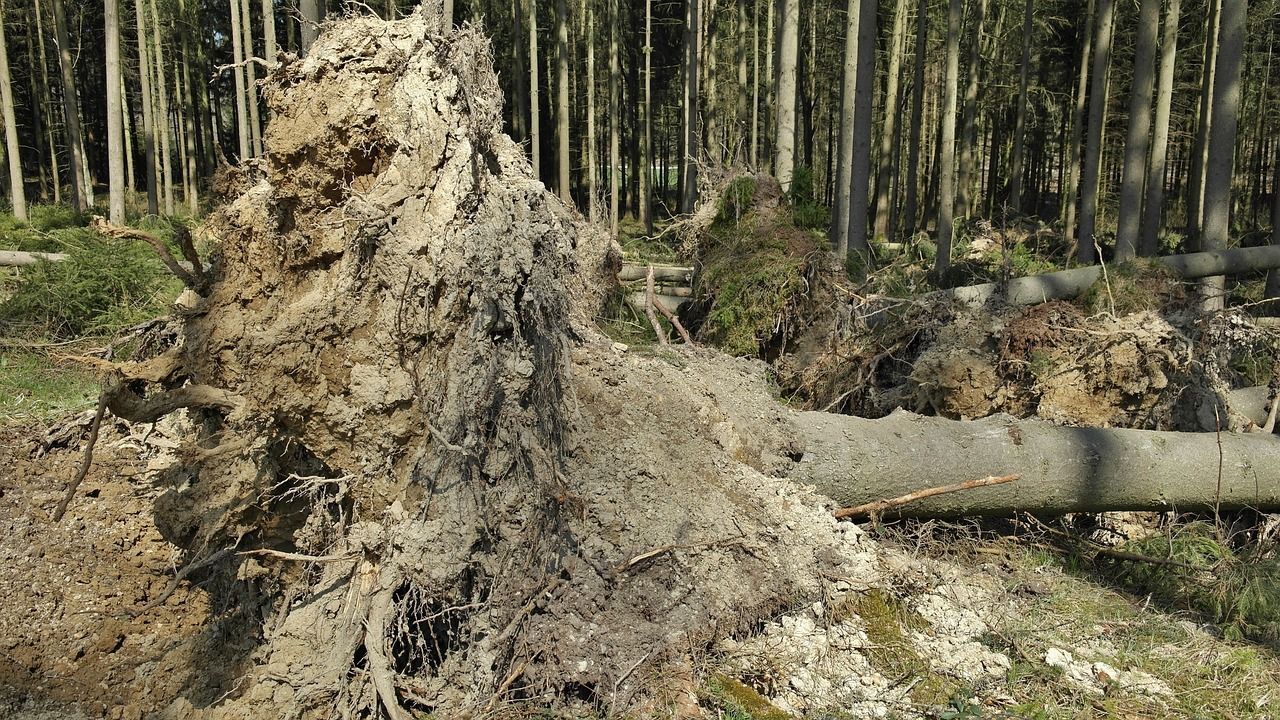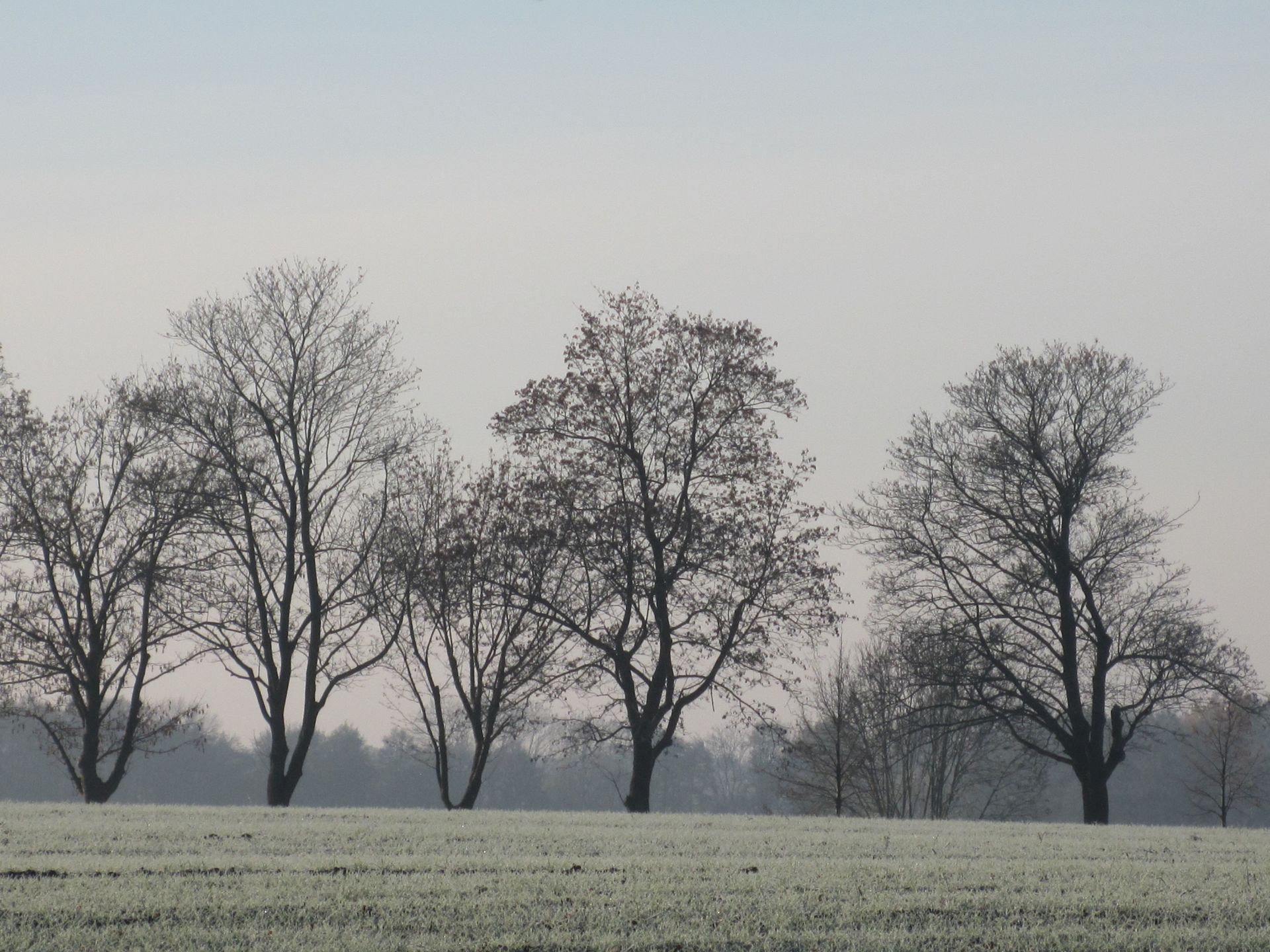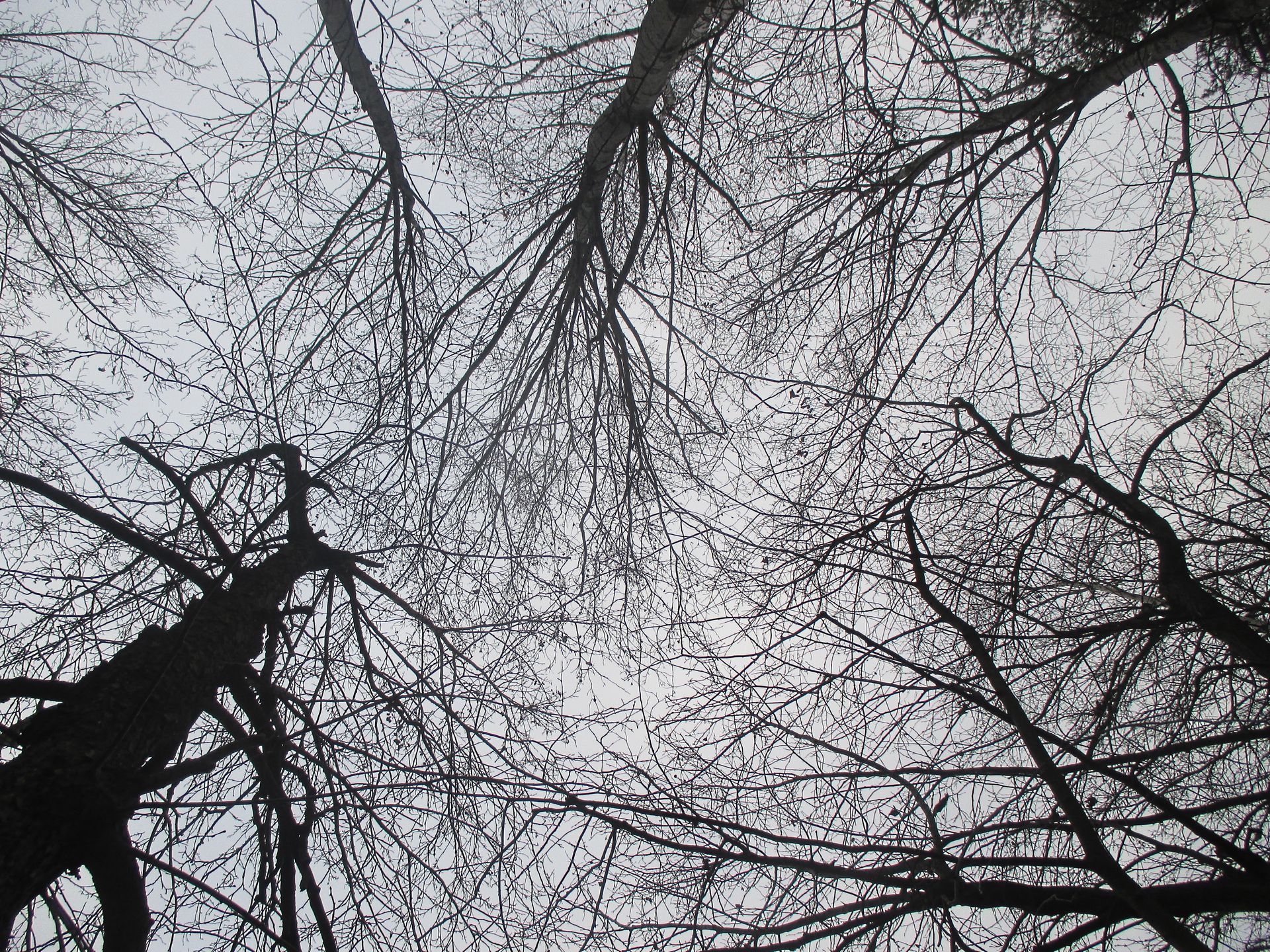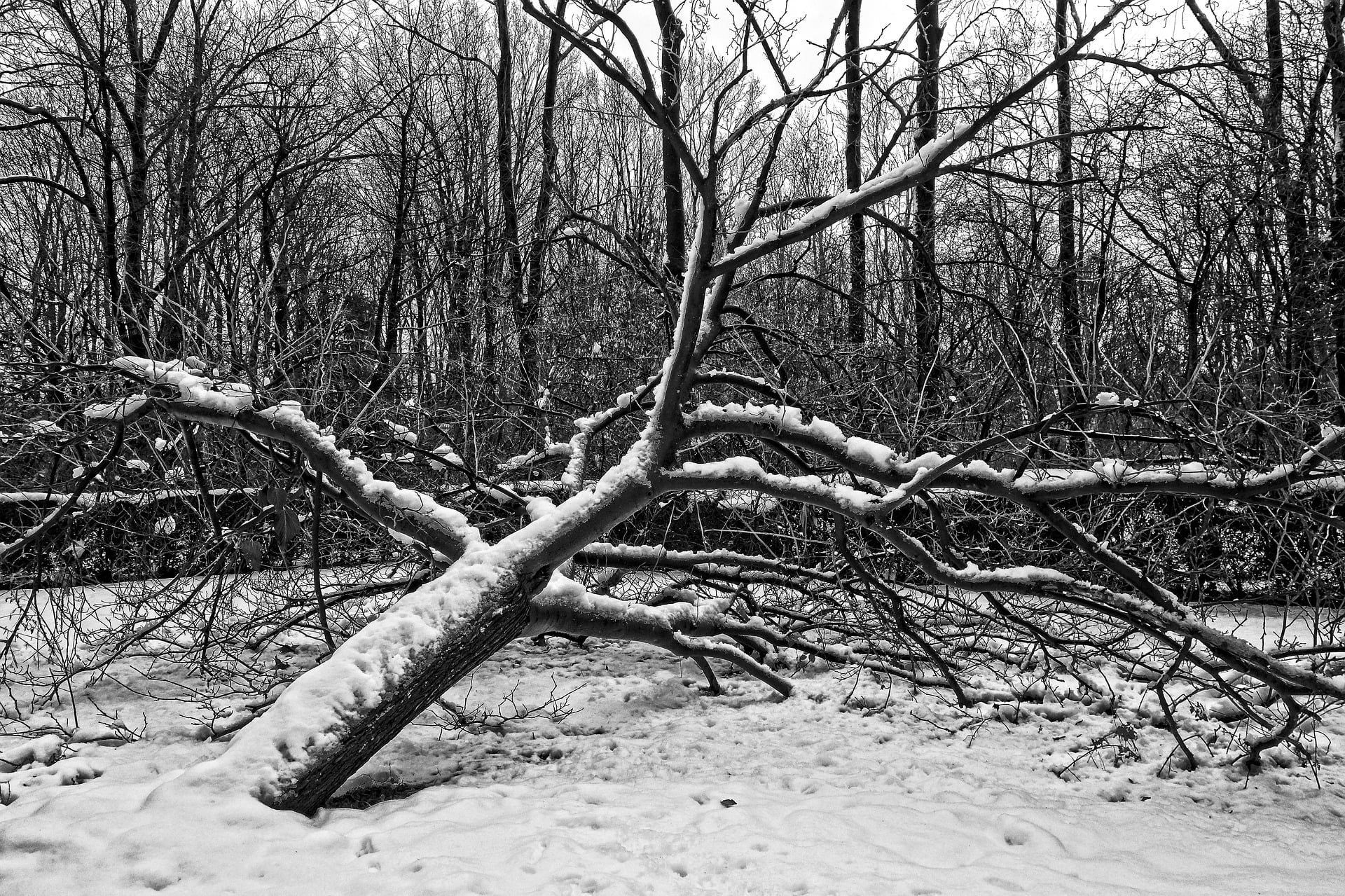Six Diamonds Tree Services, Inc
Four Reasons Your Trees Should Be Inspected
Published by Six Diamonds Tree Services, Inc. January 26, 2024
Tree inspection services play a crucial role in preventing property damage, personal injuries, and power outages by identifying and correcting potential tree failures before they escalate. By regularly inspecting trees, especially after stormy weather, trained arborists can detect structural defects and health issues, ensuring the safety and stability of trees on your property.
Incorporating tree services and looking for 'trees services near me' can help maintain tree health and beauty. Whether it's during seasonal changes or after major weather events, these services provide essential care, identifying early signs of disease, pest infestations, or structural weaknesses.
Visible Signs of Decay or Damage
Understanding the visible signs of decay or damage in trees is crucial for maintaining the safety and beauty of your property. Here are key indicators that it's time to seek professional tree inspection services:
- Branch Health:
- Dead or damaged branches that are brittle or have missing bark pose a safety risk and require immediate attention.
- Signs of decay such as holes or cracks in the bark, leaf issues, and evidence of the tree beginning to lean indicate serious health problems.
- Trunk and Bark Conditions:
- Sunken areas on the trunk or branches, known as cankers, along with peeling or cracked bark, can signal disease or pest infestations.
- Discoloration of the bark, including dark streaks or black patches, often results from fungal activity, which is a red flag for tree health.
- Visible fungi, such as mushrooms or conks on the trunk, roots, or surrounding soil, are clear indicators of internal rot or decay.
- Preventative Measures:
- Regular inspections is essential for early detection and prevention of tree decay.
- Proper pruning practices, along with appropriate fertilization and watering, help maintain tree health and prevent decay.
By being vigilant and recognizing these signs early, you can prevent potential hazards and prolong the life of your trees. If you notice any of these signs, consulting with tree services near me for a professional assessment is a wise step towards ensuring the safety and aesthetics of your landscape.
Signs of Pest Infestations or Diseases
Recognizing signs of pest infestations or diseases early can save your trees and prevent the spread to others on your property. Here are key indicators and what they might mean:
- Leaf Symptoms:
- Discoloration: Yellow or brown leaves during the growing season could signal disease.
- Dark Spots/Patterns: Indicative of fungal or bacterial infections.
- Odd Growths: Gall-like formations suggest fungal disease.
- Witches' Broom: Dense twig clumps may be due to pests or disease.
- Trunk and Branch Signs:
- Sawdust Residue and Holes: Look for these as they often indicate wood-boring insects like beetles.
- Cottony Masses/White Spots: Could signify scale insects or other pest colonies.
- General Health Indicators:
- Stunted Growth: Both pests and diseases can cause trees to grow abnormally small.
- Chewed or Distorted Foliage: Signs of larvae, beetles, or aphid problems.
It's crucial to act swiftly if you notice any of these symptoms. Tree inspection services can identify and help eradicate pests or diseases, ensuring the health and longevity of your trees.
Impact of Environmental Changes
Environmental changes have a profound impact on the health and stability of forests, necessitating regular tree inspection services to mitigate potential risks. Here's how these changes affect our trees:
- Climate and Forest Health:
- Elevated temperatures will result in reduced soil moisture, increased winter survival of forest pests and diseases, and heightened competition from invasive plants.
- These alterations will have a significant impact on the forests in northern New York, where hemlock, fir, and spruce trees thrive in cooler climates. The heightened occurrence of severe weather conditions will result in elevated levels of flooding, runoff, soil erosion, and heightened wildfire risks during the summer.
- Precipitation and Temperature Shifts:
- In the past century, there has been an approximate increase of 3°F in average winter temperatures, 2°F in spring temperatures, and 1.4°F in both summer and fall temperatures.
- In New York, winter temperatures have increased three times the summer temperatures.
- Wetland forests and lush forests bordering rivers and lakes are projected to face the greatest impact from severe droughts and flooding events.
- The rising sea levels in southeastern New York are expected to cause coastal flooding and result in the permanent loss of forests. Furthermore, alterations in the timing of spring and fall frosts will exacerbate the harm to tree roots and flowers in all forested areas.
- Adaptation and Migration:
- Forests can adapt to climate changes if they are well-connected, allowing for species migration in response to shifting environmental conditions.
- Tree species migration patterns, such as moving uphill or northward with rising temperatures, indicate the dynamic response of forests to climate change.
Understanding these environmental impacts is crucial for maintaining tree health and ecosystem balance. Tree inspection services play a vital role in identifying and addressing these challenges, ensuring the safety and beauty of our landscapes.
Changes in Tree Growth or Appearance
Changes in the growth and appearance of your trees can be subtle yet indicative of underlying health issues. Here's how to recognize these signs:
- Growth Patterns and Foliage:
- Stunted or sparse growth and reduced foliage signal potential health problems.
- A significant decline in the tree’s overall size or deviations from its typical shape and size for its variety are red flags.
- Stress Indicators:
- Rapidly growing, vertical sprouts from a tree's branches or trunk, known as suckers or water sprouts, are stress or damage indicators.
- When to Seek Professional Help:
- Regular assessments are crucial for early problem detection
- Consider calling an arborist twice a year, especially at the end of summer, which is 'Tree Check Month.
- Solutions post-assessment may include hazard reduction, pruning, or in severe cases, tree removal.
Being proactive and recognizing these changes early can save your trees and maintain the aesthetic and safety of your property. If you notice any of these signs, reaching out to tree inspection services or local arborists can provide the necessary care and intervention.
As we navigate the challenges posed by tree health and maintenance, the importance of timely and professional tree inspection cannot be overstated. Regular inspections serve as a preventative measure, identifying issues before they escalate into serious problems. Remember, preserving the beauty and stability of your landscape is an ongoing effort that requires attention to detail and prompt action. For a professional assessment and peace of mind regarding the health of your trees, do not hesitate to call us at (845) 878-7888 for a free estimate. Taking this crucial step toward tree care can help ensure a safe and vibrant environment for everyone.

